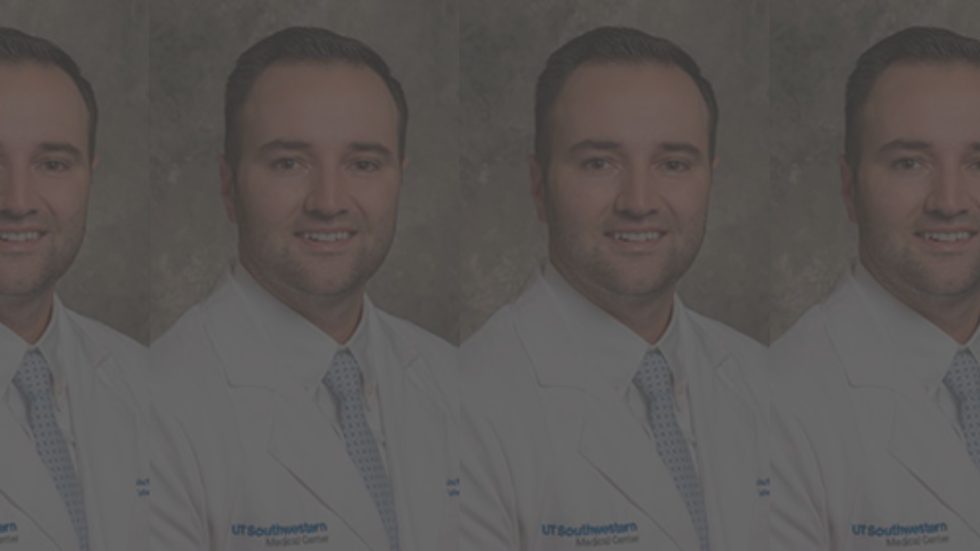
“The best memory is when you see patients in the hospital who are really struggling,” Dr. Richard Lueking said. “And then you see them in the clinic afterward, and they’re so much better.”
As an infectious disease physician, Lueking reflected on the struggles faced and memories made during medical school, residency, and fellowship. The most rewarding moments during his career, he said, occur when he sees the gradual recovery of his patients.
During his fellowship at the University of Texas Southwestern Medical Center, Lueking had a 24-year-old patient who was from Mexico, who didn’t know he’d contracted human immunodeficiency virus (HIV) while he was in Mexico. When the patient came to the U.S., he became extremely sick; he felt heartbroken and lost, burdened by the stigma that came with HIV infection in his culture.
However, he responded exceedingly well to treatment, and was ultimately able to attend university after getting better. The last time Lueking saw him, he was wrapping up his freshman year of college.
“Not only were we able to impact his medical problem, but we changed the trajectory of his life,” Lueking said. “We were able to say, ‘You’re no different than anyone else. You can go to college, get a job, and have relationships.’”
Early years abroad
Lueking earned a Bachelor of Science degree in Biology at Texas A&M University. In addition to volunteering at the local hospital, shadowing some family friend physicians, and working a non-medical job, he took a heavy load of calculus-based bath classes.
“I had an interest in maybe doing some engineering-type stuff, if med school didn’t work out,” Lueking said.
Additionally, Lueking’s passion for global health prompted him to take a couple trips to help out with medical clinics outside of the U.S. He traveled to a variety of regions in South and Central America, such as Mexico, the Amazon, and Peru.
As an undergraduate student, he wasn’t certified to do most tasks, but he was still able to assist the medical professionals with various duties. He helped package pharmaceuticals and distribute them to patients, and he assisted doctors dress wounds, suture, and remove parasitic bot flies from sinus cavities.
Lueking’s experiences abroad ultimately solidified his interest in infectious diseases, which he would continue to specialize in during his fellowship.
A spectrum of society
Lueking eventually matriculated to Texas A&M School of Medicine, where he earned a Doctor of Medicine degree. He went into medicine wanting to specialize in any kind of practice that would involve underserved, at-risk people.
“I was really drawn to infectious diseases, because you see the spectrum of society,” Lueking said. “You see the homeless, drug users, HIV patients, post-surgical patients, and wealthy people — you really see the full spectrum.”
A majority of infectious disease practice is related to HIV, a major global health issue that afflicted 37.7 million people in 2020. Lueking said that a large proportion of his patients are of low socioeconomic status who get “left behind,” and he felt a strong call to do something in medicine that involved seeing that subpopulation of people.
Infectious disease, it turns out, was a natural path to that.
Lueking completed an internal medicine residency at the Medical University of South Carolina, where he currently works as an Assistant Professor of Medicine.
Internal medicine is the “base field” for a variety of specialities including infectious disease, as well as cardiology, pulmonology, and nephrology. According to Lueking, internal medicine is extremely inpatient-heavy, so his focus was on care for exclusively medical problems, not surgical.
“In residency, you are the doctor, so you’re basically managing all of the patients,” Lueking added. “You do have a lot of independence, depending on where you are as a resident.”
Though the ACGME, the accrediting body for residencies, required that you couldn’t work more than 80 hours a week, Lueking often got very close to that number. He routinely averaged 60+ hours per week during his most busy rotations. However, during his research months, he worked a much more standard work schedule.
Lueking participated in surgical research during medical school, but it was unrelated to his preferred specialty. Most of his infectious disease research came during residency, where he investigated hyperlipidemia, a condition involving a decrease in plasma cholesterol levels, and its relation to HIV.
Lueking’s team also examined the use of lipoglycopeptide antibacterials against invasive gram positive bacteria infection: the lipoglycopeptides inhibit bacterial wall synthesis and disrupt cell membrane integrity of bacteria such as Streptococci and Staphylococcus Aureus.
“The biggest challenge of the whole medical education process is that it’s long,” Lueking said. “It can be a decade or more, so you definitely have to make sacrifices. Whether that be time with family or friends, that’s the biggest challenge – making sure your priorities are in line.”
Lueking said that there isn’t any way around the time requirements of residency and fellowship: it’s energy- and time-requiring, and you don’t have the freedom to take random trips like your non-medical friends. On the flip side, he said, it’s very rewarding.
“For me, my family is the most important, so I make sure I have time with them,” Lueking added.
Future goals
“As a resident and as a fellow, most of your impact is involving patients,” Lueking said. “It’s in terms of being available, learning more about them, and not trying to get them out of the room, but really trying to have a relationship with them.”
According to Leuking, the healthcare system is broken and rigid in terms of innovation and enhancing access to care. He said that improving healthcare inequities is what needs to be on the forefront, whether it means how healthcare is delivered, through telehealth, home admissions, or any of the other ideas that people are currently floating around.
“We need to be forward thinking if we’re really going to change the culture of medicine,” Lueking said.
Lueking has always wanted to teach, and he aspires to remain in academia and interact with students and patients in a clinical setting. He also hopes to work abroad at some point, while still practicing medicine in the U.S. a couple times a year.
From an education standpoint, Lueking said that there is commonly a mentality of “I work super hard and underwent a lot of hard things, so you should too” in the medical field. However, he hopes to practice a mentor-apprentice style of teaching, making himself available to his students and being flexible with each person’s ability to learn.
“There’s no reason to tear people down to their very foundation, because you leave all kinds of wounds in terms of sleep deprivation and being yelled at,” Lueking added. “These are still people, and everyone learns differently.”



